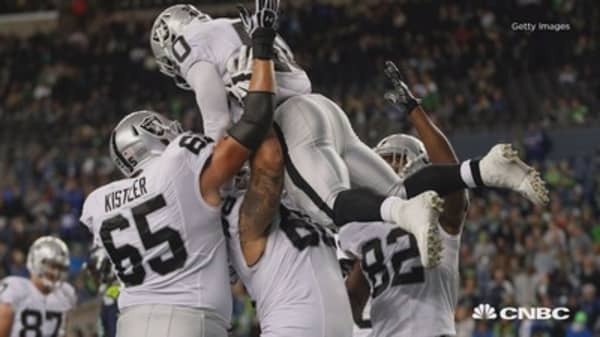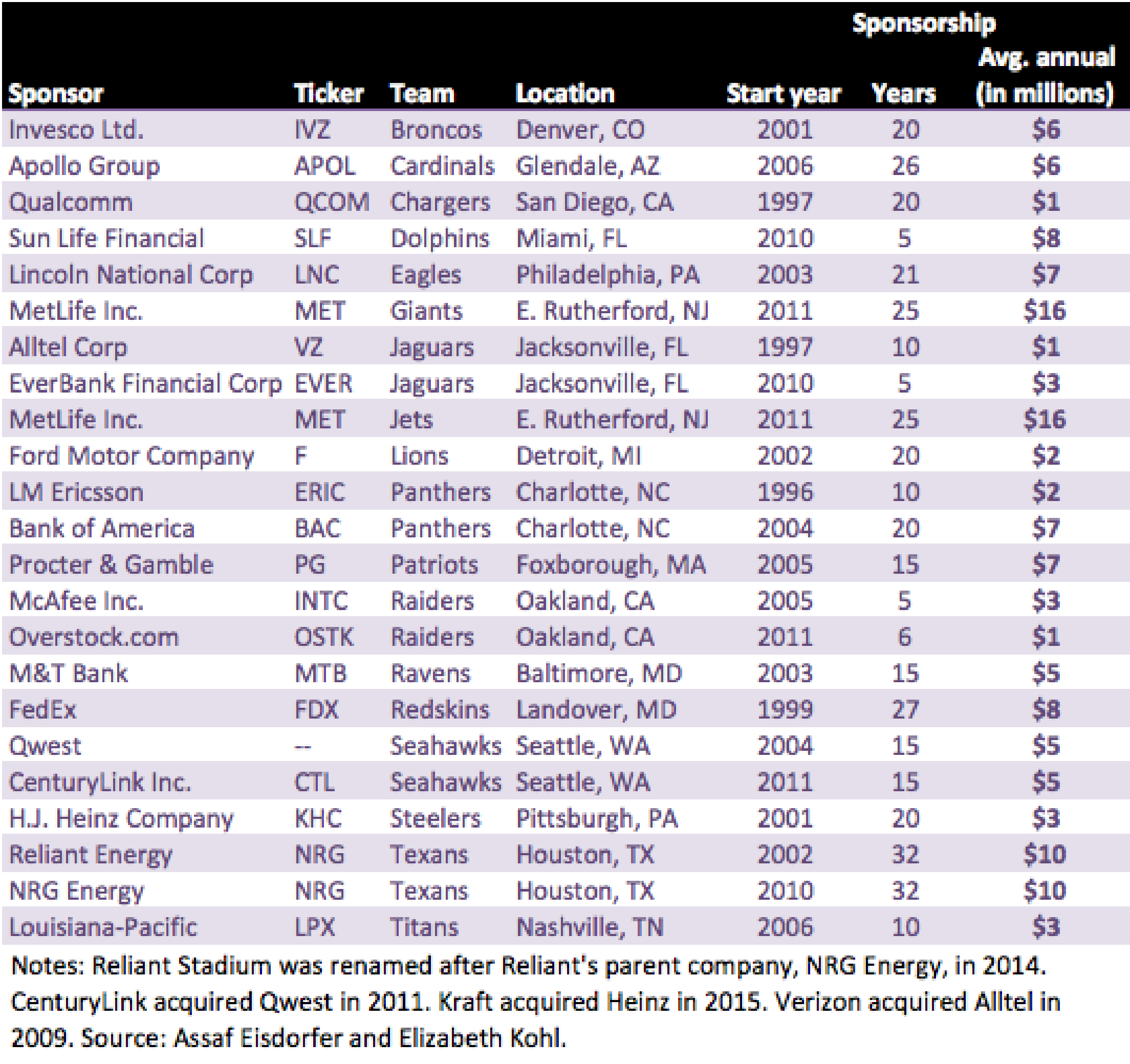As a new season kicks off Thursday night, are you thinking it would be nice to see your company's name on the big board of your local NFL team's stadium? You might want to consider the squad's record before shelling out the big bucks required for naming rights. Research shows that a sports team's performance on the field can have a direct effect on the stock returns of sponsoring firms.
A pair of researchers at the University of Connecticut wrote a paper to be published next year in a journal called Critical Finance Review that points to up to a 127 basis point abnormal return for sponsors of winning NFL teams.
"Outcomes of NFL games could serve as a reasonably exogenous instrument for investor sentiment," the authors wrote.
A win during the postseason has a positive effect on the stadium sponsor's stock price, the authors found, to the tune of 82 basis points higher than a loss when averaged out over six models. Monday night games too, generate an abnormal return of 50 basis points higher.









